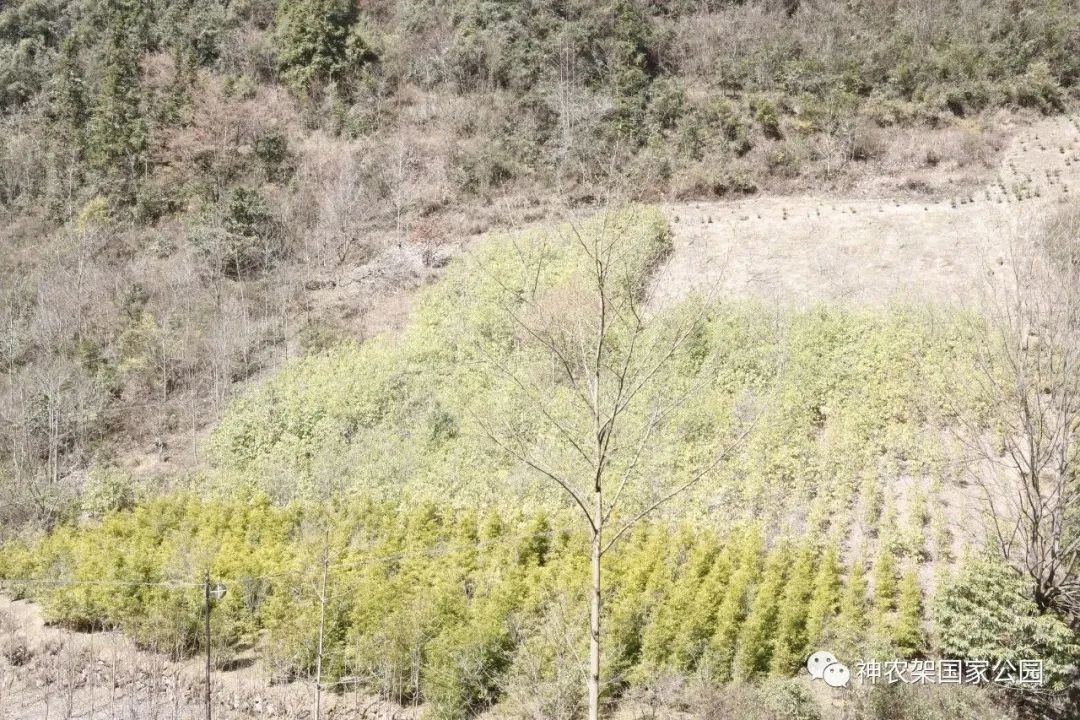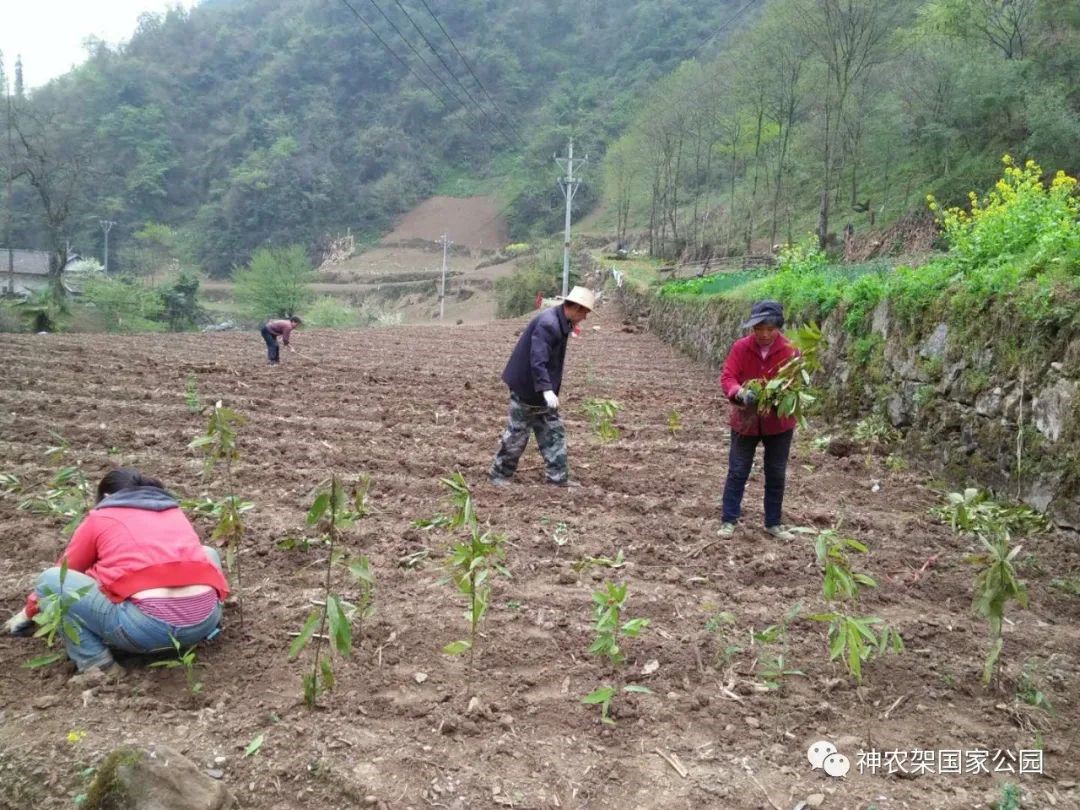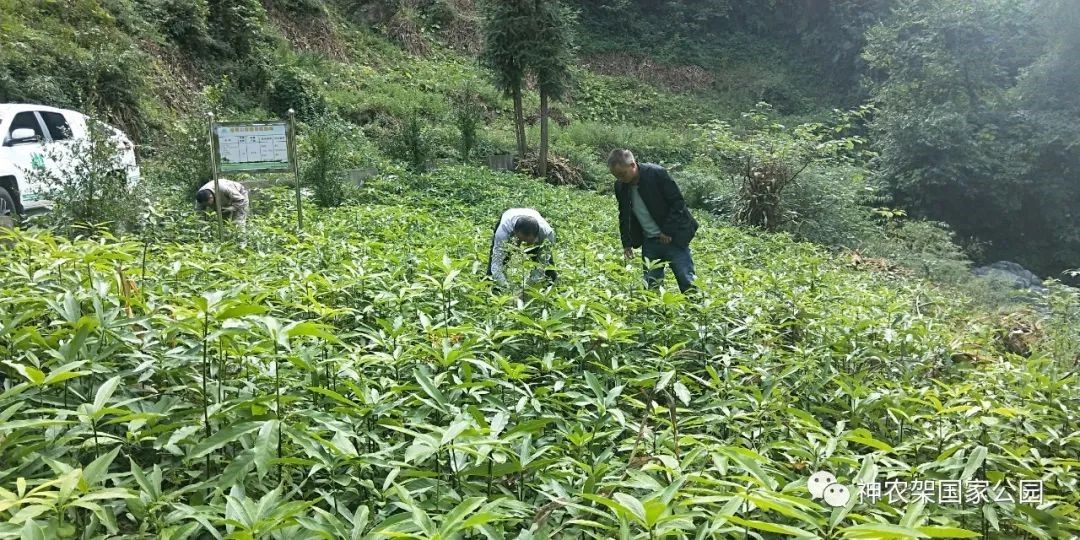Sharing the Benefits of Ecological Protection with the Whole Community
Updated:2023-05-13 Source:Shennongjia National Park
Laojunshan Village, with 280 households and 970 residents, is located within the jurisdiction of Shennongjia National Park. There is no industry in the village, but limited arable land and steep mountains, therefore, most young laborers choose to work outside the village. Tan Meng, who was just appointed to the Laojunshan Management Agency of the Administration of Shennongjia National Park in 2017 for community co-building, has been deeply pondering how to change the dilemma of "the village cannot have a way of supporting its own inhabitants".
“Previously, the village only grew corn and potatoes. Nowadays, saplings of rare tree species such as Phoebe zhennan and Davidia involucrata have been planted. We started the planting in 2020. Before that, we only grew crops and could just harvest grains for food. Planting tree saplings is now much more profitable than growing crops,” Mao Guanghui said happily.
 (A corner of the Laojunshan nursery stock base)
(A corner of the Laojunshan nursery stock base)Initially, farmers in the village were unwilling to plant saplings especially the elderly who had experienced famine in the last century. They always felt that they would be at ease only if they had food in hands and even with a poor harvest, they could eat enough. Tan went door-to-door and persuaded them earnestly, time and time again. He firmly believed that the people would understand him eventually as long as he worked hard and explained the reasons and potential benefits to them clearly.
 (Planting saplings)
(Planting saplings)In Tan's memory, there was a family that had made a deep impression on him. That’s Zhao Xihong’s family. Initially, Zhao was skeptical about the land transfer. He was afraid that he could not make money. However, after dozens of Tan’s patient explanations, Zhao agreed to provide partial farmland for a try. However, when they were about to sign the agreement, Zhao's mother reneged. She had been growing crops all her life, and had never planted saplings. She worried that if the saplings could not survive, her family would get no money or food. “Saplings will be provided by the national park and land transfer fees and labor costs will also be paid. After the saplings grow up, they will be purchased by the national park at a guaranteed price no matter how the market situation will be, and thus you will only make a profit without any loss,” Tan explained in detail. Eventually, the old mother understood and agreed. In 2022, Zhao’s family earned over RMB 30,000 from planting Lindera megaphylla. Now, Zhao's mother tells everyone she meets, “Tan is reliable. Trust him and you won’t go wrong.”
 (Guiding farmers to manage saplings in the field)
(Guiding farmers to manage saplings in the field)After the seedlings are planted, field management will be particularly important. At this stage, Tan takes on the role of a technician. With a straw hat and a water bottle as his standard accessories, he always stays in the field with the farmers, teaching them step by step, including land tilling, sowing, sapling cultivation, weeding, pruning, and watering. Last year, the drought continued for a long time. Tan got up before dawn and went home late at night. He led the farmers in taking good care of the saplings, resulting in a bountiful harvest.
At present, the Laojunshan nursery stock base covers an area of nearly 1,000 mu, and more than 40 kinds of rare plants have been successfully cultivated and transplanted, including Davidia involucrate, Taxus wallichiana var. chinensis, Manglietia patungensis, Houpoea officinalis, and Tetracentron sinense, with more than 330,000 saplings. Stated as "Lucid waters and lush mountains are invaluable assets", the theory is implemented by Shennongjia National Park, with guiding villagers to plant trees for wealth being one of its practical measures. This approach makes villagers not only participants and practitioners, but also beneficiaries of ecological protection, increasing households' income by over RMB 20,000 annually on average.
At this year’s work meeting, Tan was honored with the title of “Exemplary Individual of Shennongjia National Park in 2022”. “Working for the villagers is my job. Some may think it is hard, but I don't think so, because I believe my choice is right,” said Tan. (By Du Hua and Wang Pin) Copyright Shennongjia National Park
Address:36 Chulin Road, Muyu Town, Shennongjia Forestry District, Hubei Province 鄂ICP备18005077号-3
Address:36 Chulin Road, Muyu Town, Shennongjia Forestry District, Hubei Province 鄂ICP备18005077号-3
Email:2673990569@qq.com
Phone:0719-3453368
Phone:0719-3453368


TOP

